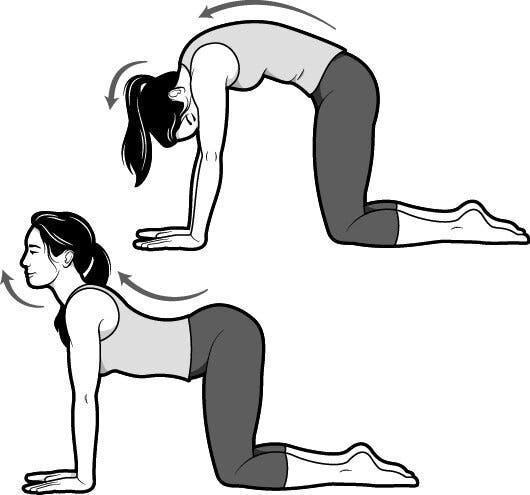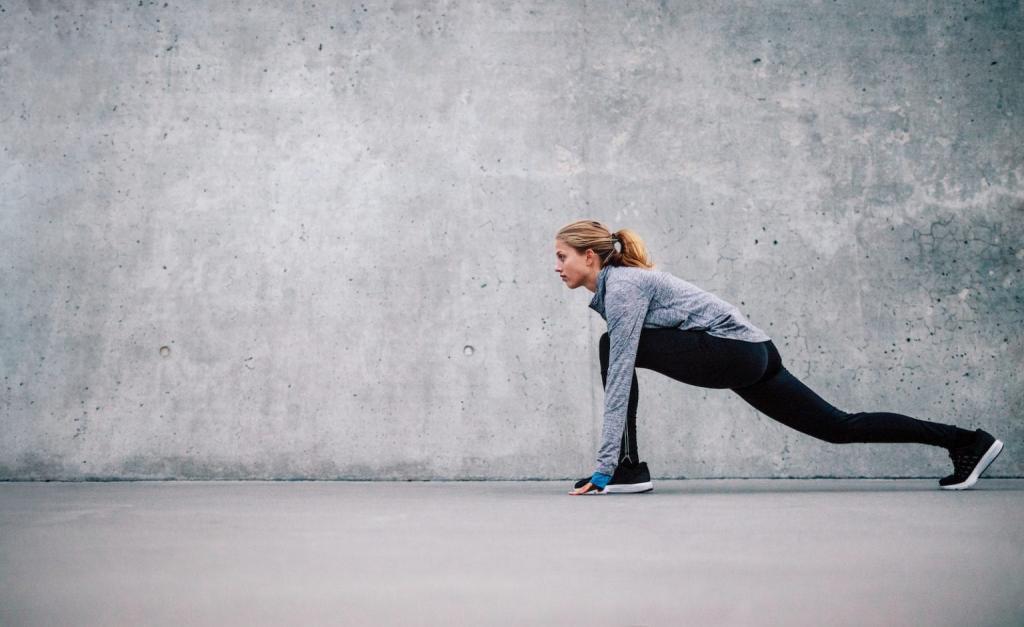When it comes to getting a good night’s rest, regular exercise can benefit most individuals, but what if you have more serious sleep issues? Chronic insomnia, defined as difficulty falling or staying asleep, waking up early, or having restless sleep numerous times a week, affects approximately 15% of individuals.

How Does Exercise Help Treat Insomnia?
People with chronic insomnia who begin regular exercise can fall asleep up to 13 minutes faster and stay asleep 18 minutes longer in as little as four weeks, according to studies. In fact, researchers discovered that exercise relieved sleeplessness just as well as hypnotic medicines. Several hypotheses have been put out as to why this is the case.
- Exercise causes changes in your core body temperature. When you exercise, your body’s temperature rises, and then it reduces. When you get ready for bed, your body goes through a cooling process to prepare for sleep, which is reflected in the reduction in temperature. There is a correlation between these changes and the fact that it’s time for sleep.
- Exercise relieves symptoms of anxiety and depression. Anxiety and depression often go hand-in-hand with insomnia. A person’s ability to fall asleep might be hindered by these symptoms, which include anxiety, worry, and stress. Endorphins released during exercise can help alleviate these symptoms and improve sleep quality.
- Exercise may realign your internal body clock. Insomnia can be caused by a thrown-off internal body clock in some people. When one’s circadian rhythms are out of whack, it can lead them to feel weary later at night than they normally would. Exercise can help people go asleep earlier by resetting their body clock, depending on the time of day. Serotonin (a hormone associated in the sleep-wake cycle) is increased during some forms of exercise, such as running, which may improve the brain’s ability to process serotonin and regulate sleep.
Moderate aerobic exercise has been proven to be the most helpful for relieving insomnia, while experts are still trying to figure out exactly how physical activity impacts sleep. Specifically, the length of time you spend sleeping deeply improves with moderate aerobic activity. For your muscles and tissues to recuperate in time for more exercise, deep sleep is an essential part of your body’s recovery process.
Can a Lack of Exercise Induce Insomnia?
Regular physical activity is linked to better sleep, according to numerous research. There is a strong correlation between a regular exercise program and a lower risk of having problems sleeping, regardless of age group. A study found that those who engage in regular physical activity are less likely to suffer long-term insomnia than those who do not.
Sleep deprivation is linked to insomnia, on the other hand. Sleep deprivation is linked to a number of issues, including poor health, stress, old age, unemployment, and lack of regular exercise. Insomnia makes it more difficult to stay active during the day because of the accompanying increase in tiredness and drowsiness.
Can Exercise Cause Insomnia?
Generally speaking, no. However, some people have difficulty sleeping after exercising too close to bedtime, while others are able to go to sleep straight thereafter without any issues.
Exercising too late in the day can cause insomnia in some people. Exercising not only improves your mood, but the endorphins released as a result of your efforts can also boost your mental alertness. The effects of exercise might last for up to two hours afterward, so it’s best not to do it right before going to sleep.
It is possible that the drop in body temperature that occurs 30 to 90 minutes after exercise will aid in falling asleep.

For the best time to exercise, keep a sleep diary and see what works best for your body. Keep track of how much and what kind of activity you do, as well as the time and length of time it takes you to get to sleep. Don’t adjust anything else that can disrupt your sleep, including a big dinner, a cup of coffee, or a glass of wine.
What Types of Exercises Are Best For Insomnia?
While there are many ways to exercise, only moderate-intensity aerobic activity, such as walking, has been proven to help alleviate insomnia. Aerobic exercise, such as jogging or weight lifting, has not been found to improve sleep quality in research studies to date.
Even a single 30-minute workout can help you fall asleep faster and stay asleep longer. Regular exercise, on the other hand, enhances the positive effects. Long-term exercise (varying from durations of four to 24 weeks) has been demonstrated to help people with insomnia sleep better and faster than they did before they started.
Other insomnia-related symptoms can be alleviated with the cardiovascular activity of moderate intensity. It can dramatically reduce pre-sleep anxiety in people with comorbid insomnia and anxiety, lowering the worrisome thoughts that make it difficult to fall asleep.
Regular, moderate aerobic exercise can lower depressive symptoms and shorten the amount of time it takes to fall asleep after four to six months. When you wake up, you’re more likely to feel rested and refreshed. The individuals in this research had the same results regardless of the time of day they exercised.
Insomnia can be alleviated by regular exercise. Consult your doctor if you’re having difficulties sleeping so that you can get a better night’s rest and feel better about yourself.
The Timing of Exercise May Matter
Gamaldo says that working out right before bed can be an asleep disruptor for certain people. When it comes to mental health, how does exercise impact the body?
- Aerobic exercise causes the body to release endorphins. Some people’s brains may become overly stimulated as a result of these chemicals. Endorphin levels can be flushed out and “the brain time to settle down” if you exercise at least 1 to 2 hours before bed, she says.
- Exercise also raises your core body temperature. According to Gamaldo, exercise has the same effect on some people as having a hot shower in the morning. A rise in core body temperature serves as a wake-up call to the body clock. The body’s core temperature begins to drop after 30 to 90 minutes. The incline aids in the process of falling asleep.
It is possible that some people find that the time of day they exercise does not have an effect on their results. There is a positive effect on sleep regardless of the time of day or night, explains Gamaldo.
‘Know your body and know yourself,’ she advises you. When it comes to exercise, doctors absolutely want you to do it, but there is no set schedule.

How many exercises You Need for Better Sleep
Gamaldo is frequently asked by patients how much exercise they should do to improve their sleep and how long it will take them to see results.
You may notice an improvement in your sleep quality the following day if you engage in 30 minutes of moderate cardiovascular exercise. When it comes to results, Gamaldo argues that “months or years” are overrated. In order to improve their sleep, patients shouldn’t feel like they have to train like they’re running the Boston Marathon, according to Dr. Goldstein.
Furthermore, Gamaldo claims that picking an exercise that you enjoy will help you stick with it, despite the fact that much research has focused on aerobic activity and sleep. It’s possible to improve your quality of sleep by increasing your heart rate, for example, by powerlifting or an energetic yoga class.
To achieve the best sleep possible, “we really hope that people will exercise, but be conscious of the timing and whether or not it seems to influence your capacity to get ideal sleep quality.”

![Top Rated CPAP Machine Buyer’s Guide [current_date format=’m/Y’]](https://bestpillowsleepers.com/wp-content/uploads/2023/03/best-cpap-machine-img_6405d72310053-400x300.jpg)
![The 11 Best Cooling Weighted Blankets [current_date format=’m/Y’]](https://bestpillowsleepers.com/wp-content/uploads/2023/01/best-cooling-weighted-blankets-img_63d4ff15c615d-400x300.jpg)
![Ultimate Guide to Choosing a Best Cooling Mattress Pads [current_date format=’m/Y’]](https://bestpillowsleepers.com/wp-content/uploads/2023/01/best-cooling-mattress-pads-img_63c403115126b-400x300.jpg)
![Ultimate Guide to Choosing a Best Cooling Mattress [current_date format=’m/Y’]](https://bestpillowsleepers.com/wp-content/uploads/2023/01/ultimate-guide-to-choosing-a-best-cooling-mattress-img_63bcdba870d77-400x300.jpg)
![Ultimate Guide to Choosing a Best Cooling Comforters [current_date format=’m/Y’]](https://bestpillowsleepers.com/wp-content/uploads/2023/01/ultimate-guide-to-choosing-a-best-cooling-comforters-img_63bba2f5cd3ce-400x300.jpg)